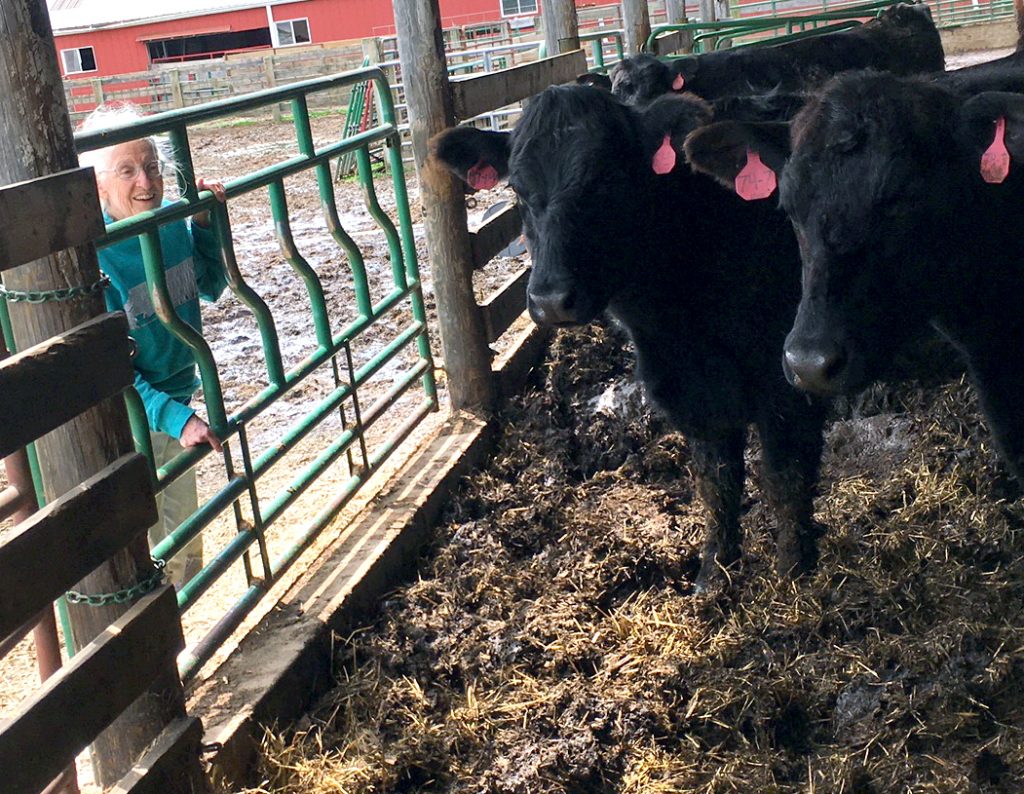Loretto’s promise to the land
Posted on June 12, 2020, by Christina Manweller
‘The bees are swarming!’
One of the hives tended by Susan Classen released a black humming cloud that was moving up and onward with definite purpose.
Swarming bees can mean the loss of 10,000-plus bees in a matter of minutes. After a rush of excitement, Susan was fortunate; the bees settled in a nearby tree. She was able to corral them and start a brand new hive. Bees swarm when their numbers grow enough to impel a group to go out seeking a new nesting place. Sometimes they can be found and returned; sometimes not.
Bees have been kept at the Motherhouse for more than a century. We would be hard-pressed to eat as we do without honey bees, as they pollinate most fruits and many of the vegetables we eat. It’s estimated that they add $15 million to the U.S. economy every year in increased crop yields. Starting in 2006, we’ve seen an alarming decline in pol-linator numbers, which may well lead to a food crisis.
Planting pollinator habitat has been a priority for Loretto. A Monarch Watch grant helped buy plants for an acre-size pollinator habitat at the Motherhouse above Badin Pond.
“Land,” Susan says, “has its own mission, and our role is to listen to that and call it forth. There can be a tendency even among environmentalists to think ‘we’re going to work to save the land,’ when really the land is offering itself to all of us and we need to cooperate with that.”
Photo by Christina Manweller
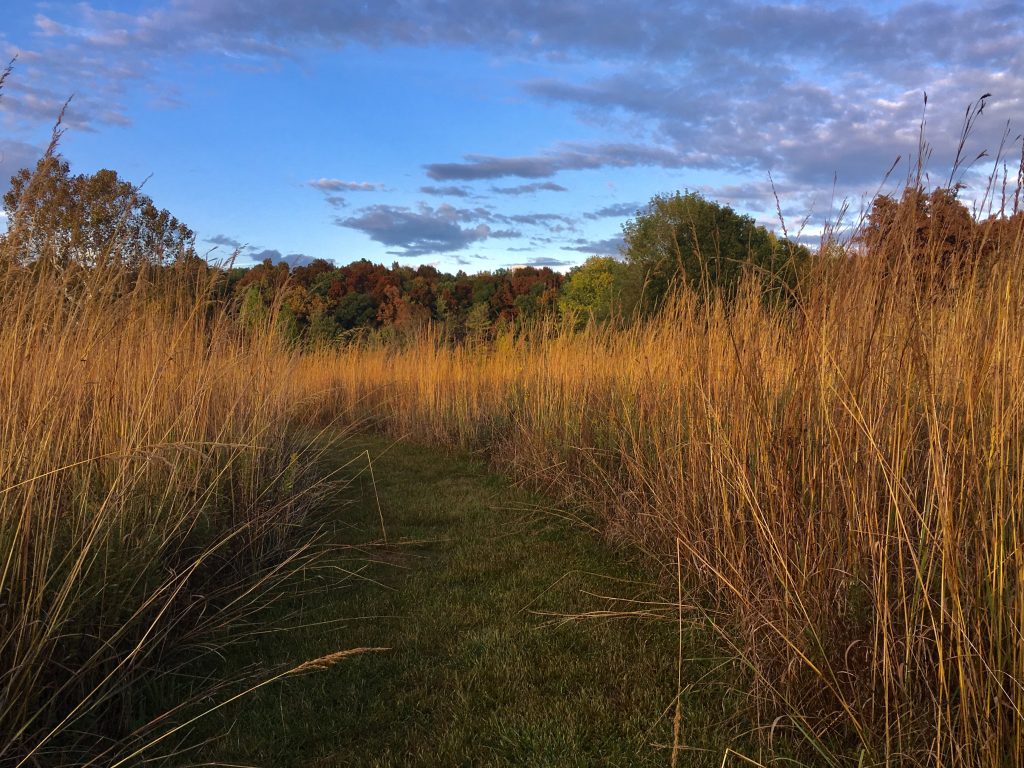
Susan speaks of her role as Eco-Systems Manager as one “that includes working with the bees, the natural burial cemeteries, some of the areas of the land that are conservation areas, like the pollinator habitats and the woods, making trails and maps, and I’ve been doing some work with the arborist who’s working with the trees on the main campus.” She is also on the Farm and Land Committee, which focuses on “the values base of how the farm is managed, how that fits with Loretto’s priorities, its values.”
Climate change and its unpredictability is incredibly hard on the land. When I visited last October, the normally-green Motherhouse campus was brown; the leaves on trees were dropping without turning vibrant autumn colors. Everywhere I looked there was evidence of stressed ecosystems. On that visit, Farm Manager Cody Rakes said, “Last year we got more rainfall than any year on record; last September was the highest rainfall of a September in any given year in data history. This September was the driest September in history.”
The fact is, we can’t do much to control upheaval wrought by unpredictable weather. Loretto is committed to educating Community members and others about the changes that we as a species must make to restore the earth’s health and keep it habitable for all of life, and for the generations after us.
Some of the steps Loretto is taking to carefully manage and conserve the land in the face of environmental degradation:
- researching and implementing the most effective methods to reduce our carbon footprint
- planting pollinator habitat
- controlling invasive species
- using farming best practices (see pages 10-11)
For information visit https://www.lorettocommunity.org/how-we-serve/environment/farm-land/
Photo by Ruth Routten CoL
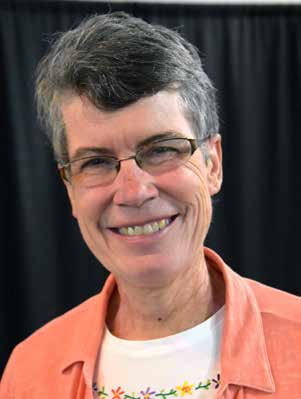
Loretto Eco-Systems Manager
We in the Loretto Community understand that our mission to work for justice and act for peace must include care of the land which is entrusted to us. We therefore commit ourselves to tend the land with respect for its integrity, conscious of:
- the capacity of land to be a sacrament of God’s beauty and goodness, reflecting God’s creativity and bounty in myriad, interdependent life forms;
- the necessity to recognize our human dependence upon the larger whole, and to tend the land in such a way that all life is enhanced and protected, and that the variety of ecosystems is sustained.
Loretto Land Ethic
Historic photos courtesy Loretto Archives
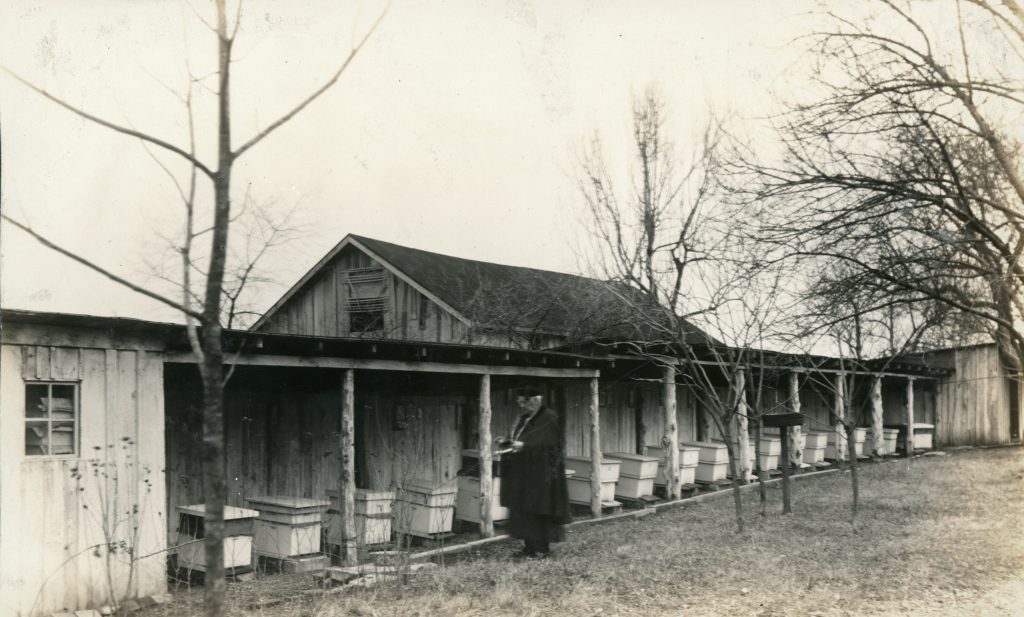
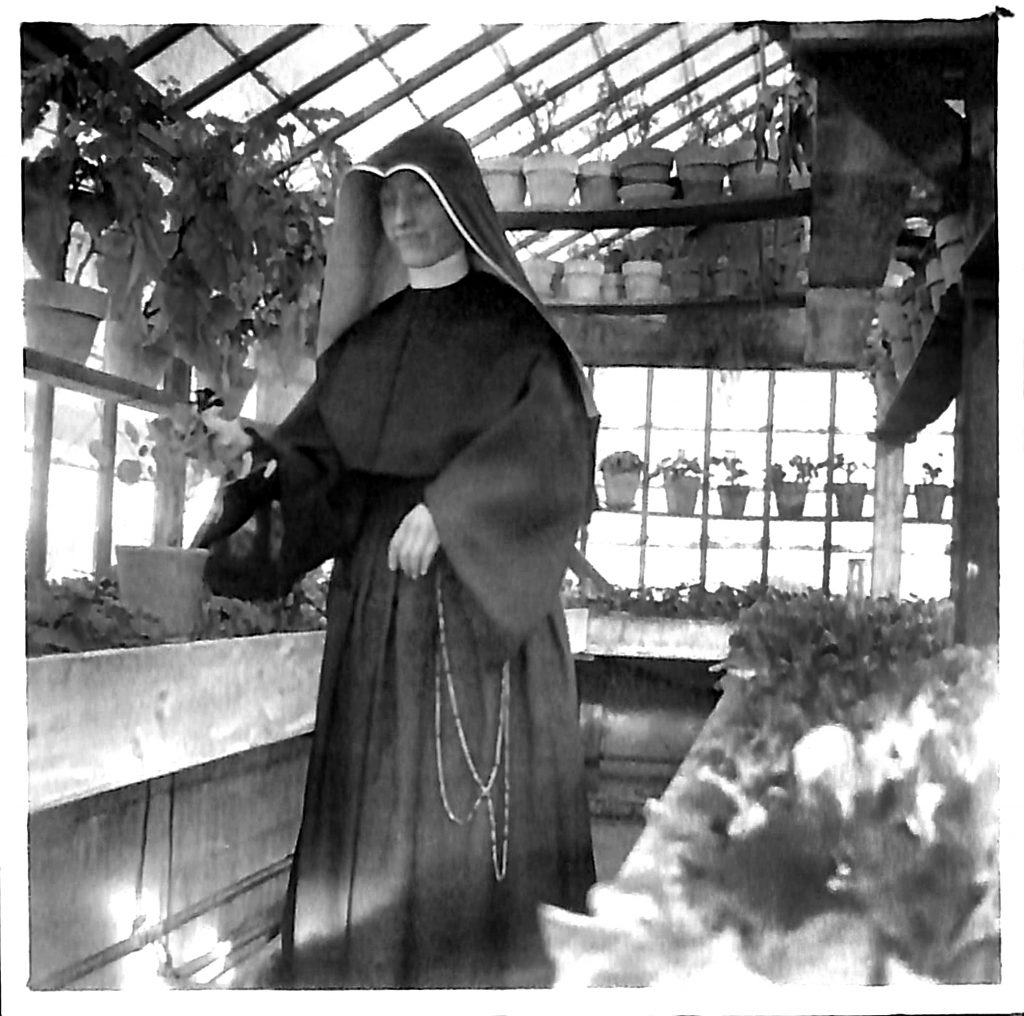
undated photo, early 20th century
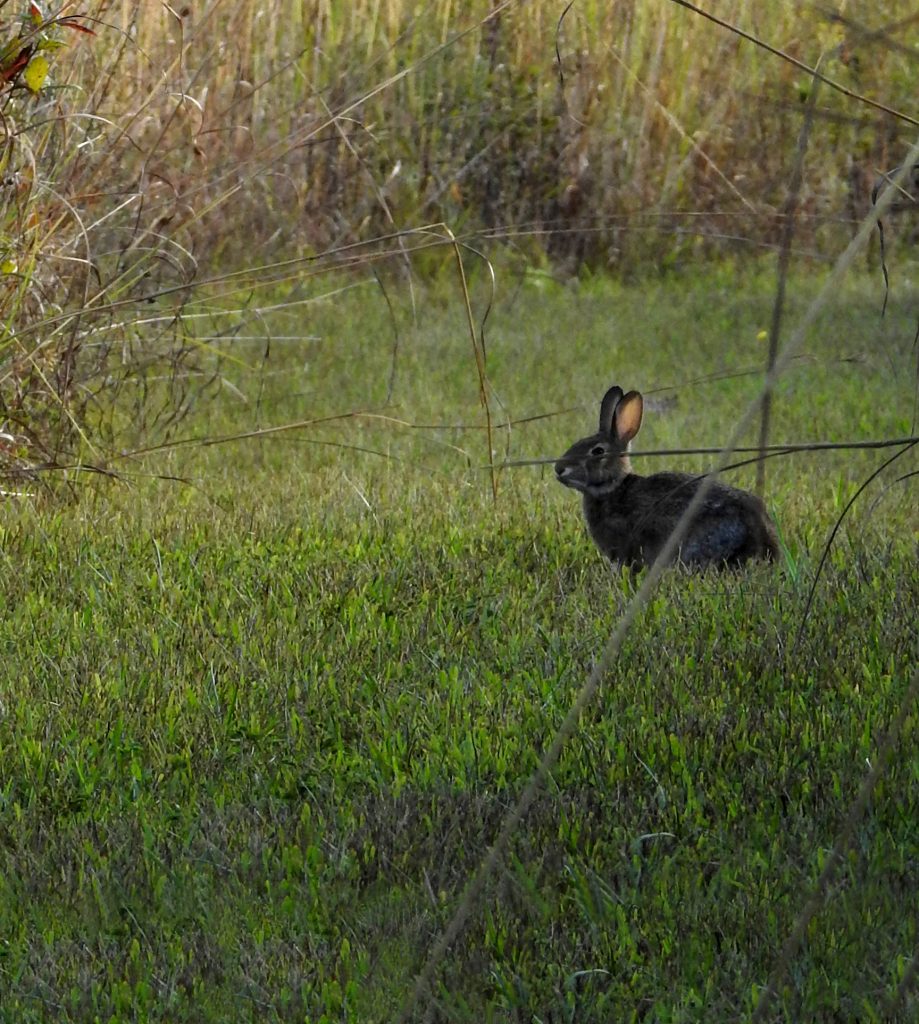
Those responsible for land at any particular time should regard it as a sacred trust, received with gratitude, tended with care for its integrity and long-term sustainability.
Loretto Land Ethic
Photo by Peg Jacobs CoL
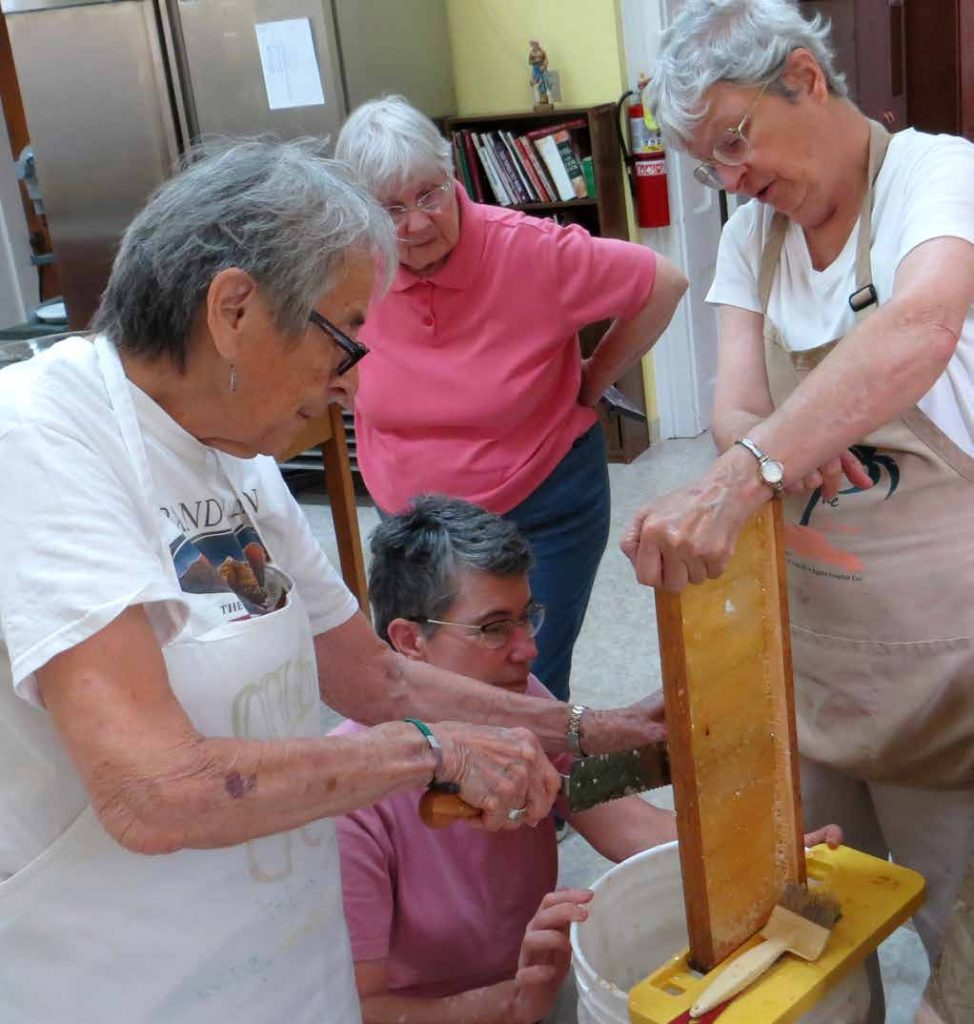
Susan Classen CoL is kneeling and Eleanor Craig SL looks on.
Photo by Marie Ego SL
